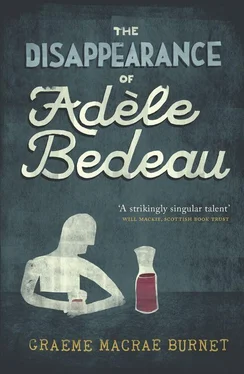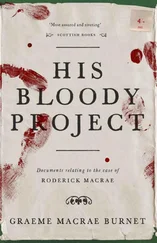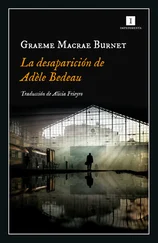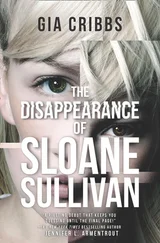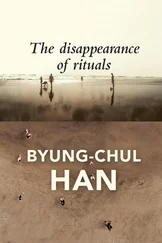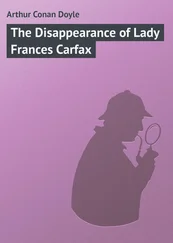Manfred half-expected Gorski to be waiting for him at the Restaurant de la Cloche, sitting at his table with his raincoat folded on his lap, nursing a glass of wine. The prospect did not worry him. Yes, he had behaved foolishly, but Gorski had no way of knowing he had lied. If he had any evidence to back up his insinuations, he would have questioned him formally. It would all blow over in a few days.
JULIETTE’S PARENTS RAISED THE ALARM early in the evening when she did not appear for dinner. The night had brought a violent thunderstorm. At first the police were unperturbed. Perhaps the girl had wandered off and sought shelter from the storm. But when she did not turn up in the morning it did not take long for the search party to discover her body. The story was a sensation. Juliette’s picture adorned the front pages of every newspaper in the country. Some monster must be at large. Reporters drew parallels with other unsolved murders, but the investigation could establish no connection to any previous cases.
Gorski had been a detective for only two years. His superior, Inspector Ribéry, was on holiday in the Swiss Alps when the story broke and the case landed in the lap of the younger officer. The torrential overnight rain destroyed whatever evidence might have existed at the crime scene. Gorski came in for vicious criticism in the press for failing to raise the alarm sooner. In reality, he had not been informed of the disappearance until the morning after it was reported, as the matter had been dealt with by the duty officer at the station. But Gorski did not think it politic to make this public.
Ribéry returned two days later. He was nearing retirement and had no wish to steal the limelight from his young colleague, especially as his more practised eye could see that, given the lack of evidence or obvious motive (the post-mortem had revealed no evidence of sexual assault), the case was unlikely to come to a rapid or satisfactory conclusion. Instead, he made it clear to Gorski that justice must be seen to be done. Gorski understood what was implied. He was determined, however, that this, his first prominent case, would not be prematurely prosecuted on account of pressure either from his jaded superior or from the press, who bayed daily for fresh developments.
Gorski pored over the crime scene photographs for hours on end. What accounted for the curious position of the body? It appeared that the girl had been strangled standing up and then thrown to the ground. Had she been walking with her assailant prior to the murder, or had she been followed into the woods? Or was it a crime of opportunism, committed by someone already lurking around the clearing? It was not even possible to state with any certainty that the girl had been killed there. Perhaps she had been done to death elsewhere before being dumped in the woods. This struck Gorski as unlikely since no attempt had been made to conceal the body, but it could not be entirely ruled out. Certainly on one score the press were correct: a monster was at large.
Gorski spent long hours sitting in the clearing where the body had been found. The area had been meticulously searched, but not a scrap of evidence had been discovered. Still he sat in the clearing smoking, listening and looking, as if he expected the trees to somehow reveal their secret. It was a lesson for him: detective work had nothing to do with intuition or inspiration. Mostly it was a matter of slavishly following procedure. The rest was luck.
The luck came two weeks after the murder. Police in a neighbouring district picked up a tramp living rough in some woods. The man, Emile Malou, had a previous conviction for sexually assaulting a minor. Gorski drove to Mulhouse to interview him. Malou was cooperative. He insisted he had never been in the woods at Saint-Louis and had never set eyes on Juliette Hurel. He had no alibi for the day in question and made no attempt to concoct one. He simply said he could not remember where he had been. It struck Gorski as the response of an innocent man. And while the tramp’s previous conviction had been for the attempted rape of a fourteen-year-old girl, there was, Gorski reminded the examining magistrate, no evidence of sexual assault in this case. There was nothing to connect Malou to the crime.
Then a local widow came forward. She said that she had seen a suspicious-looking character in the vicinity of the woods around the time of the murder. She could not remember the exact day, but she picked out Malou, whose picture had already appeared in the papers, at an identity parade. It was enough for the examining magistrate. Malou was charged and found guilty, but Gorski remained unconvinced. He visited Malou in prison and told him he believed that he had been wrongly convicted. The tramp just shrugged and refused to appeal. He appeared content to spend the remainder of his life in the relative comfort of prison. ‘I’m getting too old for living rough,’ he told Gorski. ‘In here I get a bed and three meals a days.’ Nevertheless Gorski vowed to continue the investigation. Notwithstanding the wrong done to Malou, a killer remained at large. For months Gorski spent his weekends walking in the woods, hoping to come across an overlooked clue, but he knew it was futile and in the end he gave up. When Malou died in jail a few years later, Gorski was the only person to attend his perfunctory committal.
GORSKI RETURNED TO THE CLEARING for the first time in several years. He parked as he always had in the lay-by on the D468, which more or less followed the course of the Rhine north. The white paint on the little wooden gate which led into the woods had mostly flaked off and the jamb was rotten. As he made his way along the path towards the clearing, Gorski tried not to think about what it was that had made him return. He had not told anyone where he was going and, were he to bump into anyone, he would be hard pressed to explain his presence. Instead he concentrated his mind on the pleasant sounds of twigs cracking under his shoes and the papery rustle of the leaves in the breeze.
After the murder, Gorski had returned to the clearing on a regular basis. Later, his visits became less frequent. After the trial, he accepted the plaudits of the press for solving the case and kept his thoughts about the safety of Malou’s conviction to himself. If his colleagues harboured similar doubts, they too kept them to themselves. He once confessed his misgivings to Céline, but she had been dismissive. The case was closed — why would he want to re-open old wounds? From the start she had found what she called his ‘obsession’ with the dead girl distasteful. She complained that he spent more time thinking about a corpse than he did about her.
As the frequency of Gorski’s visits to the clearing dwindled, he felt guilty, like a widower who lets his wife’s grave become overgrown. At first, his visits were borne of the conviction that something must have been overlooked, that there was some evidence staring him in the face, but after a few months Gorski knew that there were no such clues or, if there had been, they had long since been destroyed. But still he came. He would sit smoking, hoping somehow to gain some insight into the crime. He was embarrassed to admit it, even to himself, but he half hoped to ‘see’ the crime. He tried to think himself into the mind of the killer. But nothing ever came. Once he had heard a character in a film say that actions left an imprint on a place, just as a fire leaves a tang of charcoal in the air, but he didn’t believe such nonsense. His mind would wander to other topics and he would only be roused from his thoughts when he came to the end of his packet of cigarettes. Certainly, one thing was clear: the killer could not have chosen a more peaceful spot for his deed. In all the times Gorski visited the clearing, he never once encountered another human being.
Читать дальше
